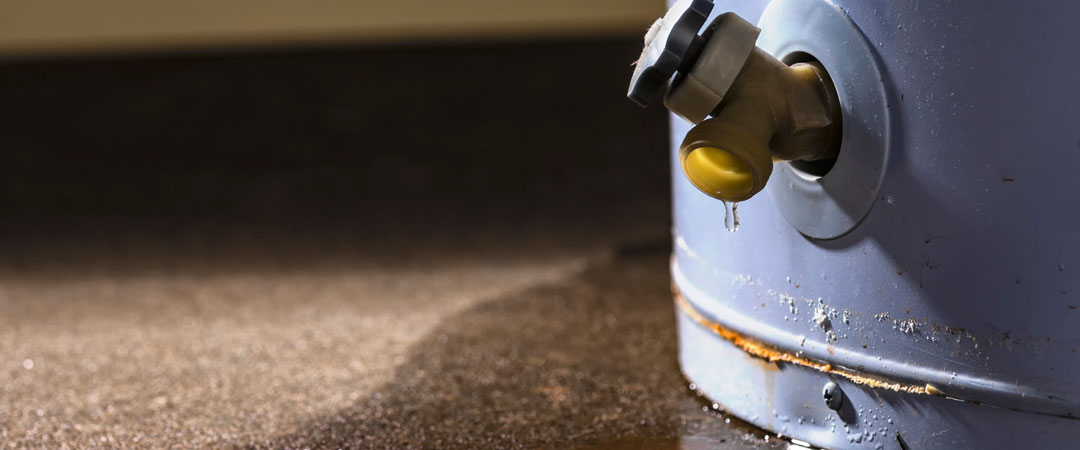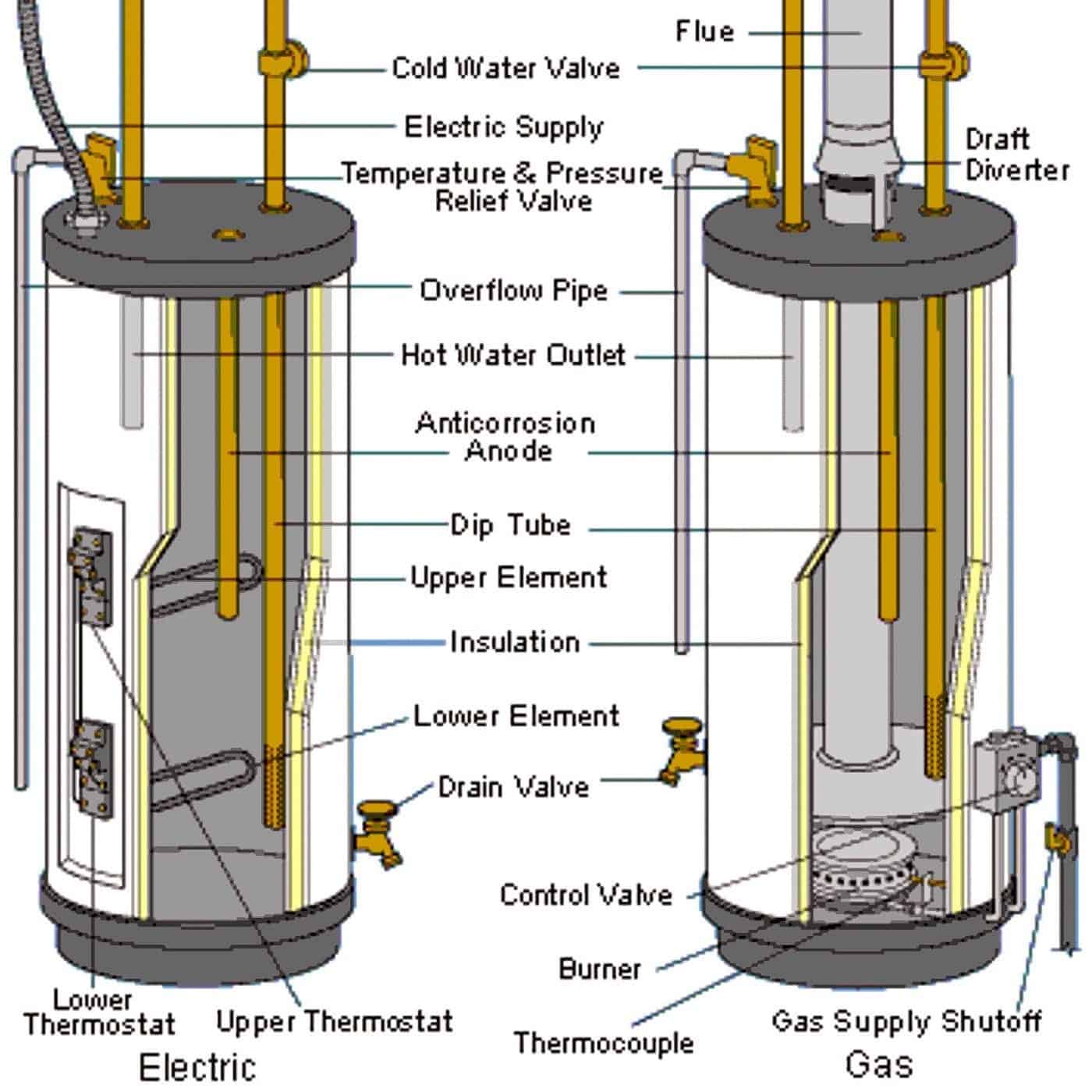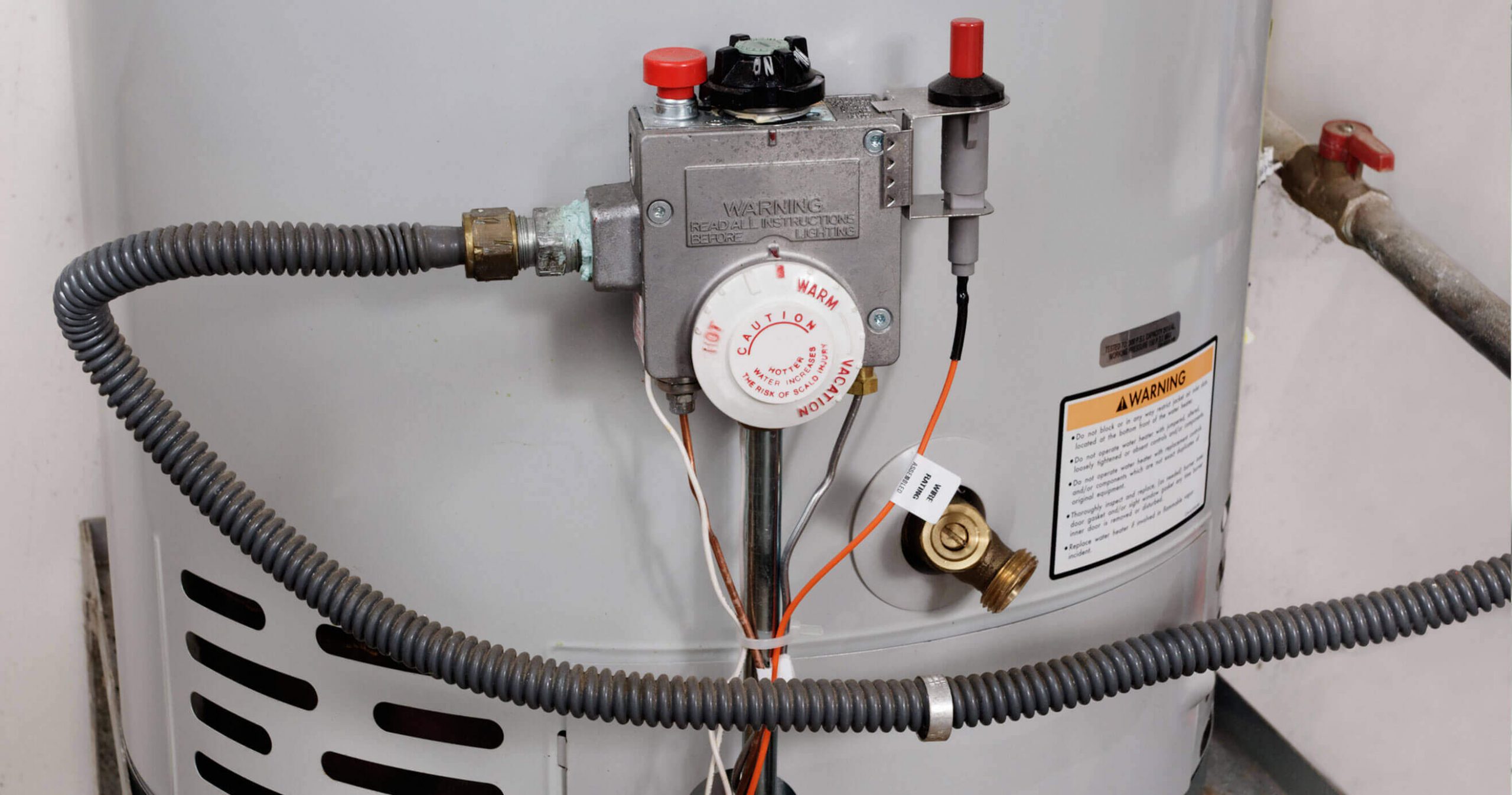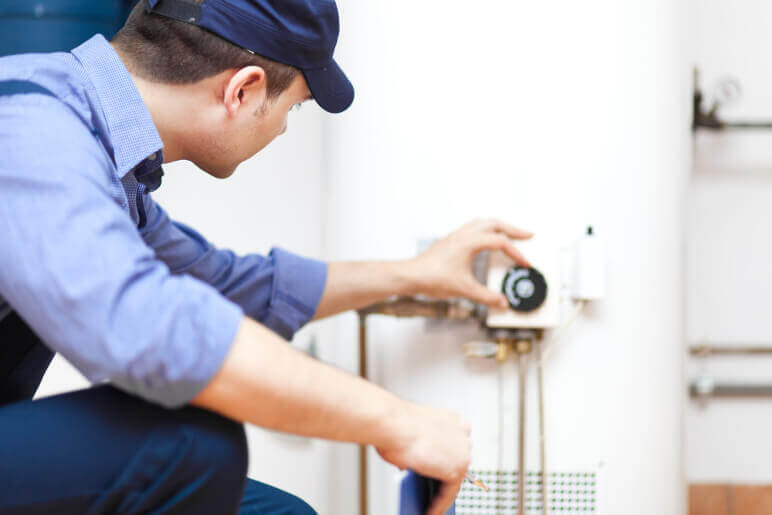Why Is My Water Heater Leaking And How Can I Repair It?

source: Bieg Plumbing
Home ownership comes with a lot of maintenance. We always need to ensure things like appliances, the furnace, the air conditioning unit, and the hot water heater are in good working order. Today, we’re going to talk about some tips for troubleshooting a leaking water heater, and how you may be able to fix it yourself before calling in the professionals.

According to Don Vandervort of Home Tips, the first step in identifying the problem is to determine whether your hot water heater is dripping, spraying, or flooding out water.
If the Water is Dripping

If the water seems to be doing a slow or steady drip, your first task is to try and determine where the water is dripping from. The most common culprits tend to be the pressure relief valve and drain valve. If the leak appears to be coming from either of these areas, it can generally be fixed by tightening up the valve.
If the water appears to be dripping from the bottom of the tank, this isn’t great news – it generally means corrosion has worn its way through the tank, and will need to be replaced.
It’s not unusual for water to drip from the temperature-pressure relief valve, as this is what it’s designed for if there is an excess of pressure. Your water temperature may be too high, or the main water supply to your home may be too powerful. If the valve itself appears to be damaged, it will need to be replaced immediately – an excess buildup of steam could cause the hot water heater to explode.
If the Water is Substantial

If the leak is less of a drip and more of a spray or flood, there is likely a water leak in the pipes, at the connections, or in the tank itself. If water is spraying out, you’ll need to act fast. Turn off the valve closest to the supply side of where the water is leaking from. If there doesn’t appear to be a valve shut-off, you’ll need to shut off the house’s water supply valve. If the leak appears to be coming from the pipes or fittings, you can generally adjust these and repair them as needed.
Again, if the water is spraying or flooding from the bottom of the water tank itself, corrosion is likely to blame, meaning it will need to be replaced.
Condensation

Another common source of water drips on or around your hot water heater is due to condensation – this is the best case scenario! Condensation commonly appears during cold weather, dripping down from the hot water heater. If this doesn’t persist or goes away once the temperature increases, it was likely condensation.
If you have a gas water heater, condensation can also form near the vent, in which case you’ll want to clean out the flue.
When to Call in Reinforcements

If you’re somewhat familiar with hot water heaters, you can always try out these tips for troubleshooting leaks yourself. Each water heater is different, so consult your owner’s manual to try and pinpoint where the issue may lie. If there is a substantial amount of water pouring from the heater and you are concerned about your home’s safety, don’t delay in calling a professional water heater repair person or plumber. Sometimes, these issues are better left to the professionals, and the cost of their services is a better alternative to an even bigger problem and cost arising down the line.
While some jobs are meant for professionals, hopefully you’ll be able to solve the smaller issues with the tips above, and save yourself a couple of bucks!